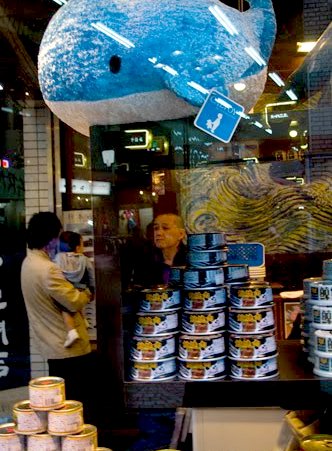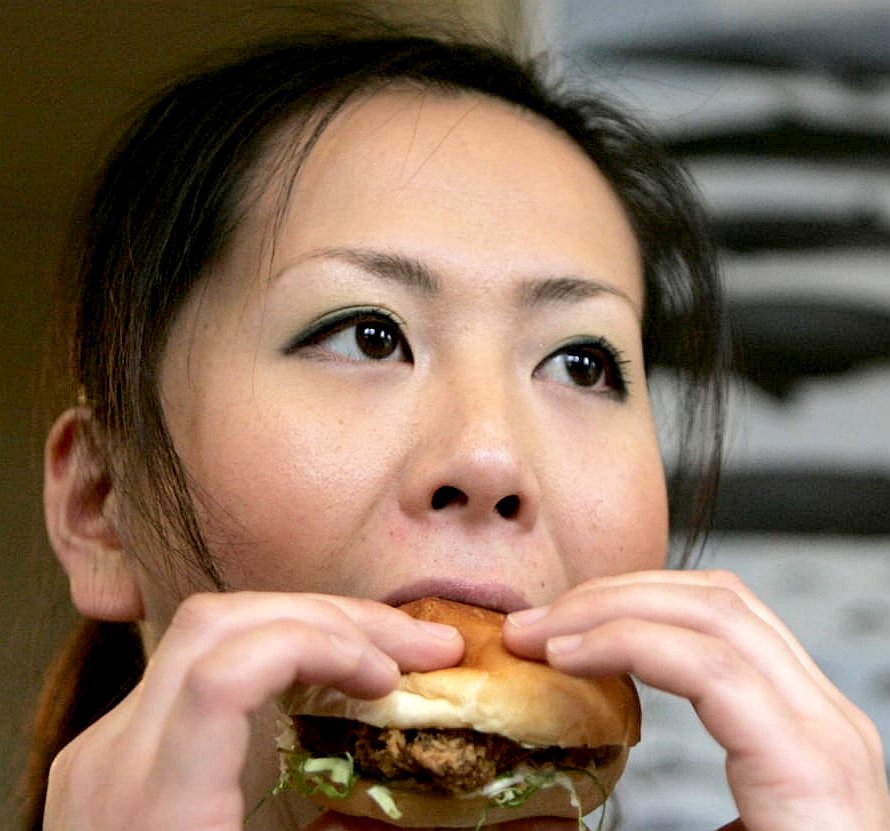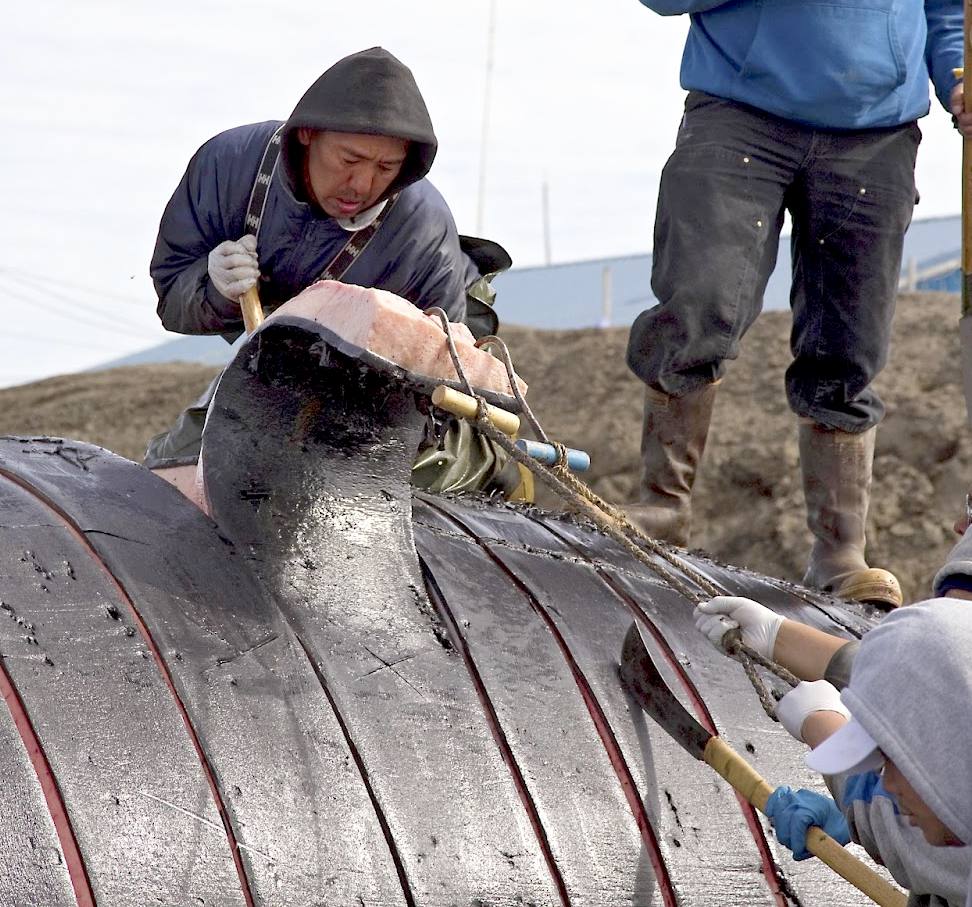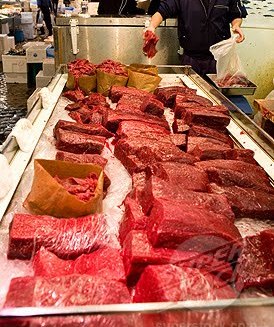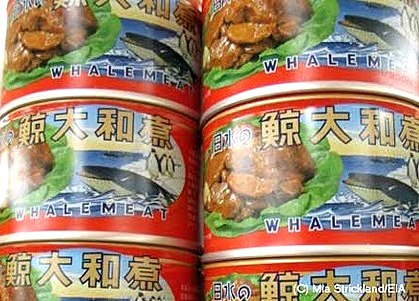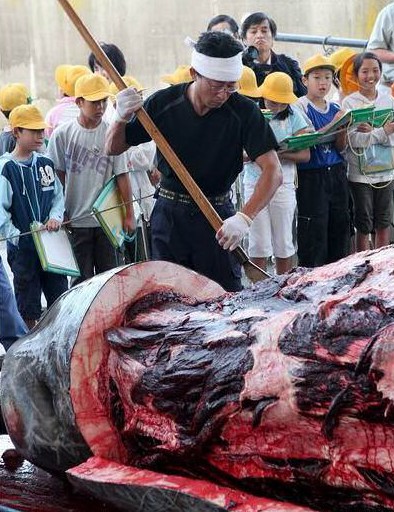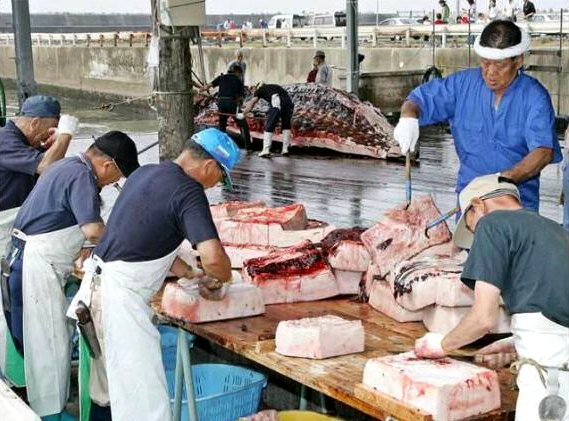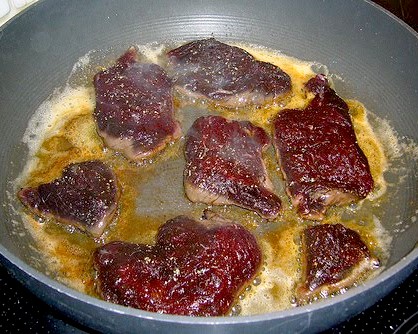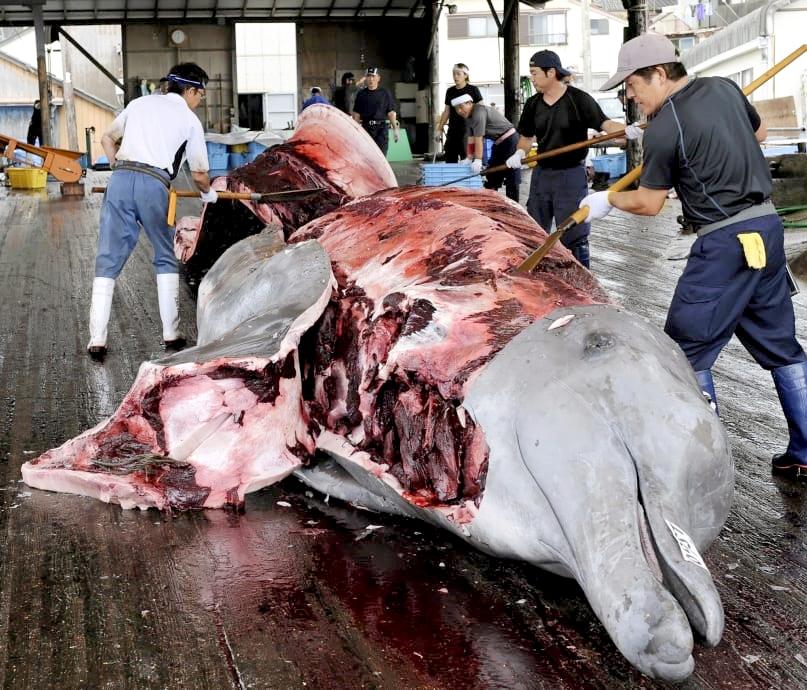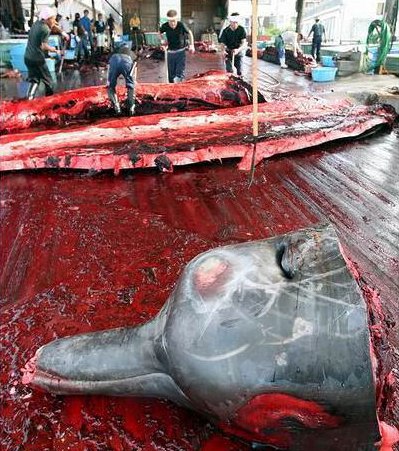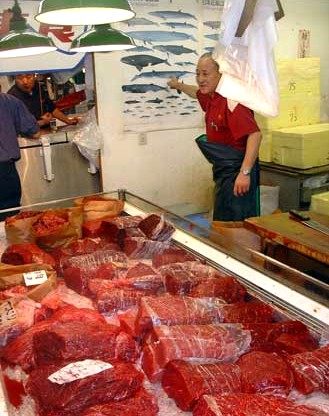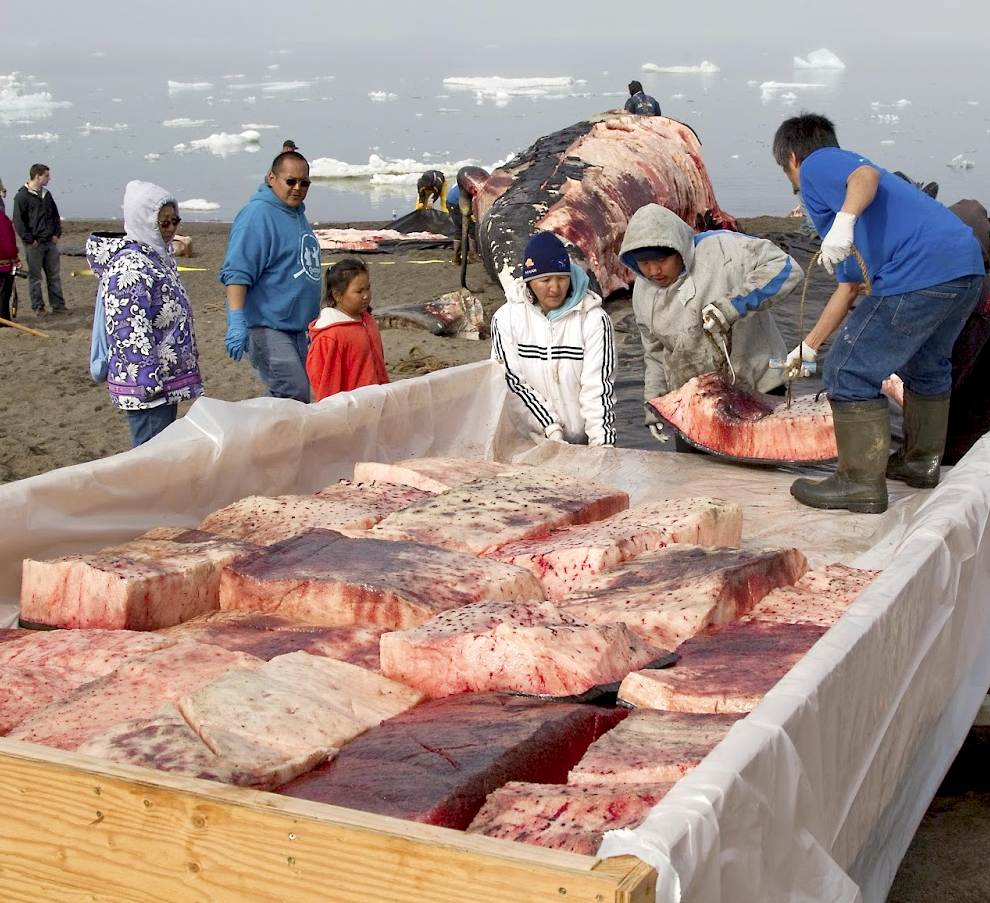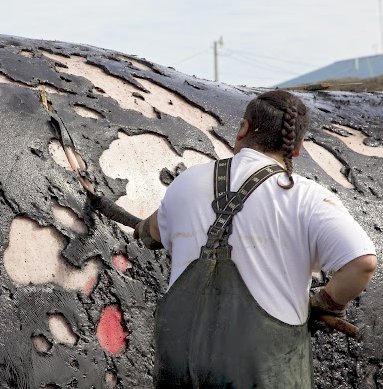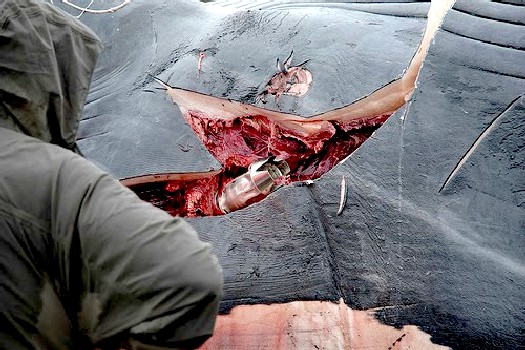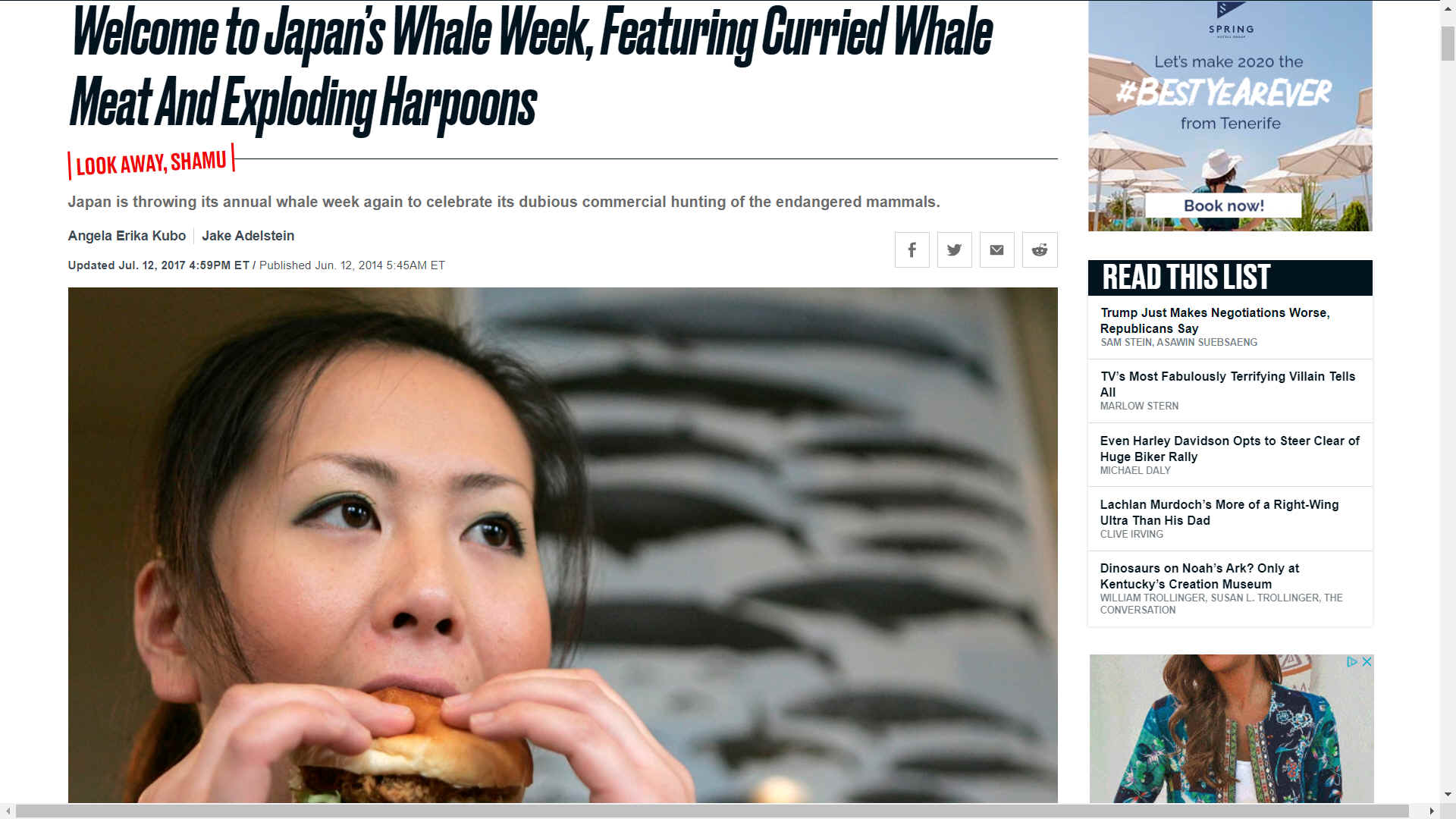
There is no doubt that
climate change is making it more difficult to farm to grow food for the
world's growing population. But do we have to hunt whales to extinction
again to try to feed a world that is simply not sustainable. Killing
whales for food is part of the extinction that human are causing. The
only way out is to change our ways.
JULY 2017 JAPANESE WHALE WEEK - THE DAILY BEAST
Welcome to Japan’s Whale Week, Featuring Curried Whale Meat And Exploding Harpoons.
Japan is throwing its annual whale week again to celebrate its dubious commercial hunting of the endangered mammals.
Once again the Japanese government is winning friends internationally by throwing metaphorical harpoons at The International Court of Justice. Of course, it may be Japan’s attempt to assert that all valid scientific research must involve killing the subject of that research.
Japanese Prime Minister Shinzo Abe stated in parliament this week that he intends to work toward the restart of commercial whaling as part of “cetacean research,” despite a ruling made this March by the International Court of Justice that put a temporary halt to Japan’s hunting activities in Antarctica. The International Court of Justice ruled that Japan’s so-called whale research was actually of little scientific value and merely a guise for commercial whaling. The Australian and New Zealand governments criticized Abe’s comments, while Greenpeace condemned the comments as “senseless” and “rubbish.”
The prime minister’s comments coincided with the start of a week devoted to the promotion of whale hunting, complete with a exhibition in the Ministry of Agriculture,
Forestry and Fisheries where the public is invited to snack on bits of whale meat. The Fisheries Minister, Yoshimasa Hayashi, opened up the exhibition over a feast of whale steak and pieces of cured raw whale (tataki) with other members of the Japanese Diet, Japan’s ruling legislative body. That dinner kicked off a government-sanctioned Whale Exhibition that will go until the 13th.
It may surprise some people but there is no shortage of whale meat in Japan; as of 2013 Japan had over 5,000 tons of cetacean steak in storage. There is plenty of supply and little demand. But never let common sense get in the way of political pride.
The butchering of whales
is not a pretty sight. Japan is not the only offender and often takes
most of the bad press where other countries are sometimes worse in the
numbers and species they are killing.
The exhibition is being held in a government building and open to the public, admission is free and so are the slightly
rubbery whale meat delights. Once guests walk into the building, past the lone bored-looking security guard, they are greeted at the door by Balenine-chan, a cute whale mascot.
Balenine-chan does look a little like a whale and while you might not be able to “humanely” hunt her down with an
exploding
harpoon, chop her up into small bits, and serve her on a platter -
like a real whale - you can certainly pose for pictures with her near the entrance. The staff is friendly and will talk to you about whale and whaling as much as you like and even let you take pictures to your heart’s content.
The mascot is named after a type of dipeptide known as balenine, which is found in minute amounts in the muscle of mammals but in ample supply in whale meat; Japanese scientists claim the substance helps cure fatigue. The Ministry of Fisheries asserts it will “make you energetic.” Pharmaceutical company Ohta Isan has a product called Balenine Dash, which is made from whale and claims to give you energy.
While environmentalists and liberal mammal lovers consider Japan’s whale hunts barbaric and a threat to biodiversity, Japan’s government-supported whaling industry doesn’t agree. In fact, some assert that killing whales is necessary to prevent
world
starvation.
“We want you to see the whale issue as a food problem. In 1980 we had 7.6 billion hectares of land [for growing food], but 20 years later in 2000 we only have 6.6 billion hectares due to desertification,” said Hideki Tokoro, a director and head of the business management department at Kyodo Senpaku Co. Ltd, a company that hunts whales, processes them, and sells whale meat. He argues that with a
growing global population and less farmland, humans will have to turn to the sea for
food sources.
“We have no choice but to catch fish. But then humans catch 90 million tons of marine products while whales eat three to five times more than that,” he said at the exhibition. “If we do not thin out the whale population, humans will have no more
fish to eat.”
The Daily Beast obtained several materials distributed at the event, including handouts about the nutritional benefits of whale meat, recipe books, and even a free DVD demonstrating cooking techniques with smooth jazz playing in the background. Kenny G and whale
meat - what could possibly be a better combination?
Guests are also invited to try fried pieces of whale seasoned with curry powder. The dark meat comes with a strong odor, and is dry. It’s not very tasty and possibly not in good taste. It’s not something you would expect the world’s third-largest economic power to “wail” over at the International Court of Justice.
Japan admits, and so does the International Court of Justice, that whale meat caught for “research” more often than not appears on dinner
tables - or goes into a warehouse. Under a loophole in the moratorium on whaling,
Japan can sell the whale meat and use the sales to fund the next year’s “research.”
The whaling industry itself is not sustainable without subsidies from the Japanese government, as evidenced by the weeklong event held inside the Ministry of Fisheries. The ministry pours an estimated 700 million yen (6.8 million dollars) into whale research per year. Public opinion on supporting
whaling is unclear. One thing is clear: Under Captain Shinzo Abe, Japan intends to restart its whaling program; exploding harpoon makers couldn’t be happier.
“The assumption of the court is that Japan will look at a new research plan. And it is OK that Japan proposes a new plan to kill whales as long as it takes into account the conditions set by the ICJ ruling,” Joji Morishita, Japan’s commissioner to the
International Whaling
Commission, told reporters at the Foreign Correspondents’ Club of Japan on June 10.
If you want to understand what the fuss is all about, get to know cetaceans better by digesting them, or just have a whale of a good time hanging out with a person dressed as a mysterious sea mammal, come to the exhibition. It runs until 1 p.m. this Friday at the special exhibition hall for consumers at the Ministry of
Agriculture, Forestry and
Fisheries in Tokyo.
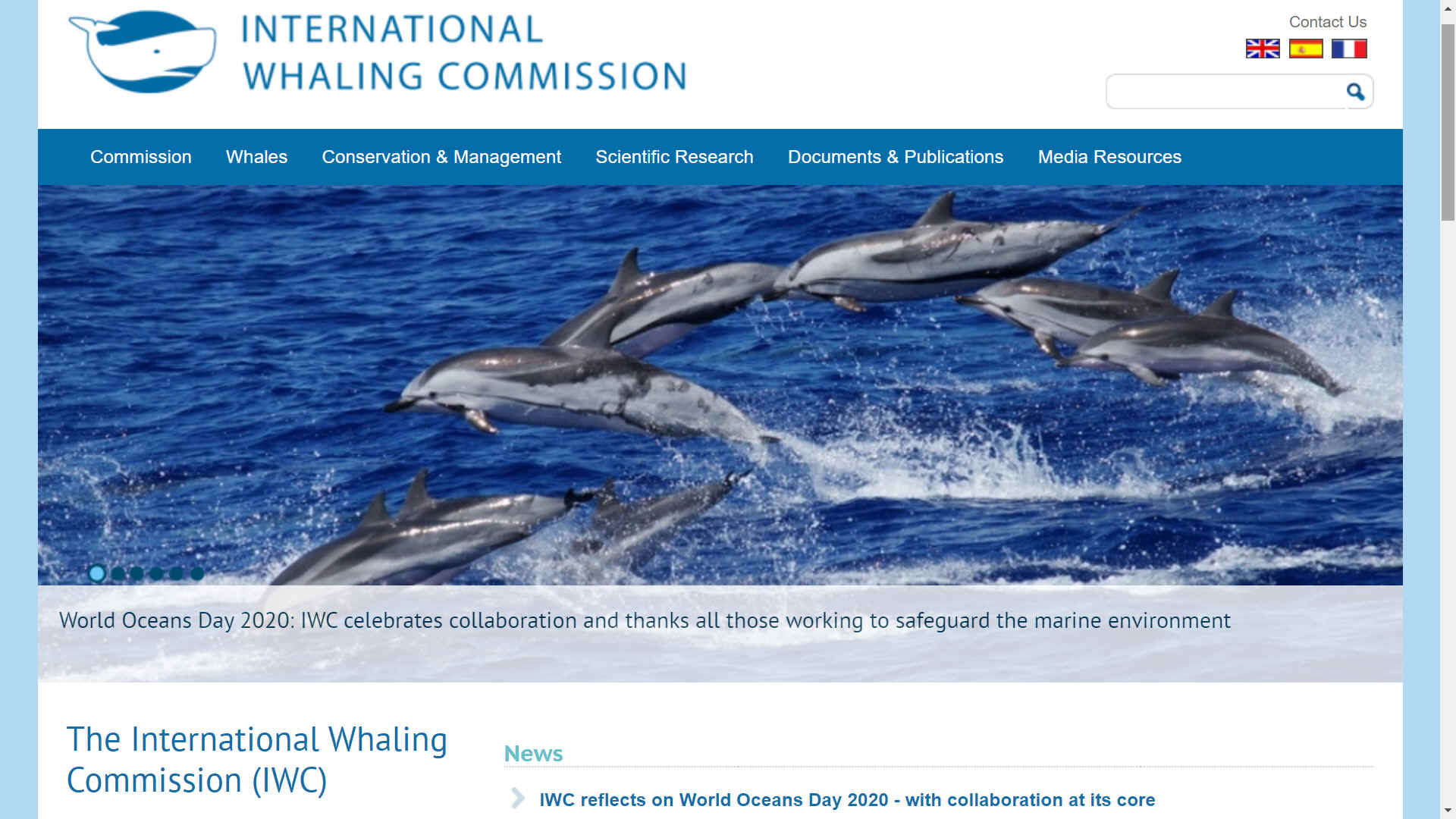
IWC is a voluntary
international organization and is not backed up by treaty, therefore,
the IWC has substantial practical limitations on its authority. First,
any member countries are free to simply leave the organization and
declare themselves not bound by it if they so wish. Second, any member
state may opt out of any specific IWC regulation by lodging a formal
objection to it within 90 days of the regulation coming into force (such
provisions are common in international agreements, on the logic that it
is preferable to have parties remain within the agreements than opt out
altogether). Third, the IWC has no ability to enforce any of its
decisions through penalty imposition.
Please use our
A-Z INDEX to
navigate this site

